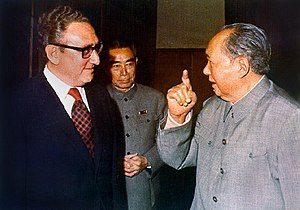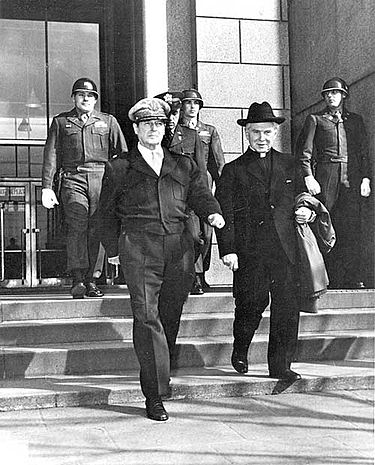Since taking office, U.S. President Biden has said, ``If China attacks, the United States will defend Taiwan,'' but he has repeatedly emphasized that ``There is no concern that the United States will engage in armed conflict with China,'' and ``The United States will not go to war with China.'' I've been doing it. what does this mean. This blog includes an article published in August 2023, "The United States is not prepared to fight alongside Taiwan; the withdrawal of U.S. forces from the Western Pacific continues behind Aso's abusive words," and a republished article in December 2022, "Concerning China's invasion of Taiwan." Three Lies: As the false ``Japan-Taiwan emergency is one and the same,'' Japan has pledged to ``go to war with China'' by saying that ``the Taiwan emergency is a Japanese emergency.'' Adopting an offshore balance strategy, the United States will withdraw from the Western Atlantic Ocean without fighting China, and will command Japan behind the scenes to ``defend Taiwan.'' Japanese people who naively believe that the United States will protect Japan based on the security treaty are nothing but flowers. The Japanese have never ``embraced'' their recent defeat. Although Japan is the vanguard of China's encirclement network, it is also a potential enemy country. It is better to think that an agreement has been reached with China to further weaken a dangerous Japan by increasing the defense burden as much as possible under the pretext of a Taiwanese emergency or a Chinese invasion. The “Japan-U.S. Alliance” is a fiction.
 During a secret visit to China in 1971, Henry Kissinger (1923-2023) met with then-Prime Minister Chou Enlai and said, ``It was a huge mistake to make Japan an economic power,'' and ``In just three months after defeat, we changed from militarism to democracy.'' "Japanese people who have changed their minds can never be trusted." ``Japan is a barbaric country. I'm worried that Japan, which has become an economic superpower, will return to militarism.'' "It is intended to bind and contain Japan, which could threaten the world." This is where the legend of the so-called ``Japan-U.S. Security Treaty = Bottle Lid'' began. In response to Kissinger's statement, ``If Japan re-emerges as a threat, we will jointly deal with it,'' Zhou Enlai acknowledged that this was the traditional relationship between the United States and China.
During a secret visit to China in 1971, Henry Kissinger (1923-2023) met with then-Prime Minister Chou Enlai and said, ``It was a huge mistake to make Japan an economic power,'' and ``In just three months after defeat, we changed from militarism to democracy.'' "Japanese people who have changed their minds can never be trusted." ``Japan is a barbaric country. I'm worried that Japan, which has become an economic superpower, will return to militarism.'' "It is intended to bind and contain Japan, which could threaten the world." This is where the legend of the so-called ``Japan-U.S. Security Treaty = Bottle Lid'' began. In response to Kissinger's statement, ``If Japan re-emerges as a threat, we will jointly deal with it,'' Zhou Enlai acknowledged that this was the traditional relationship between the United States and China.
If we accept this strategic exchange between Chou Enlai and Kissinger honestly, we can understand the meaning of Biden's statement above. For the current US administration, even more than weakening China, which has become a major power that threatens the US, it is necessary to further weaken Japan, which has achieved ``miraculous growth'' even after its defeat in the war and once again threatens the US and other Western countries. The "lost 30 years" marked Japan's second defeat against the United States. As a complementary force to the declining United States, Japan's economic achievements will continue to be squeezed out until the very limit.
Kissinger resigned as Secretary of State with the resignation of the Ford administration. He was invited to join Georgetown University's Center for Strategic and International Studies (CSIS). CSIS, which is now a haven for Japan Handlers, was founded at the same university in 1919 by Edmund Walsh, a disciple of German geostrategist Karl Haushofer. It became an independent research institution from Georgetown University in 1987, and is integrated with American national security groups such as the U.S. Army. Kissinger serves on the board and is also an advisor. Kissinger, his protégé Brent Scowcroft, and Zbigniew Brzezinski, who often appears on his book blog, also served on the board. Many of them serve as National Security Advisors to the President.

[Photo] CSIS founder Edmund Walsh visits Douglas MacArthur at the GHQ headquarters building in Tokyo in 1948. Walsh visited Japan at a time when occupation policy was shifting toward emphasizing the Cold War against the Soviet Union, and the liberal New Dealers in the GHQ Civil Affairs Bureau were being exiled to their home country. It appears that there was discussion about semi-permanent control of Japan, which is a geopolitical strategic point facing Eurasia (China and Russia).
Richard Armitage, the lead author of the Armitage Nye report, which was approved by the Abe government in a cabinet decision that ``the exercise of the right of collective self-defense is constitutional,'' is also a favorite disciple of Henry Kissinger. Prime Minister Kishida spoke to the U.S. Congress this April and touted the Japan-U.S. global partnership, saying, ``Japan is with the United States everywhere in the world,'' but in the end, he was nothing more than a puppet dancing in Kissinger's palm. If we look at Article 9 of the Constitution from the perspective of realism, it is another ``bottle cap.'' Armitage and others ordered a ban on amending the constitution in their 2012 third report. It is natural to think that the purpose of the United States is to maintain the Potsdam Declaration and never allow Japan to become independent. The deep-seated mistrust of Japan that Kissinger pursued, who pursued realist diplomacy based on the balance of power and fearlessly joined hands with the enemy in order to maintain American hegemony, will likely never be dispelled from American politics.
